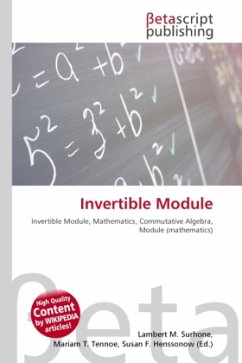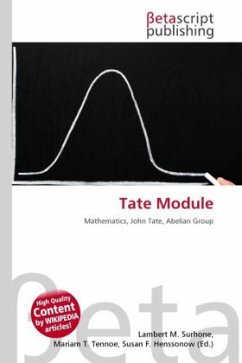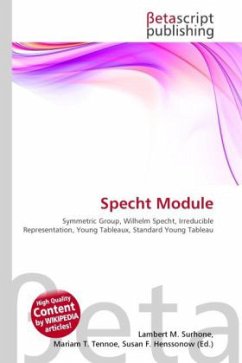High Quality Content by WIKIPEDIA articles!In mathematics, particularly commutative algebra, an invertible module is intuitively a module that has an inverse with respect to the tensor product. Invertible modules form the foundation for the definition of invertible sheaves in algebraic geometry. Formally, a finitely generated module M over a ring R is said to be invertible if it is locally a free module of rank 1.The subject, first known as ideal theory, began with Richard Dedekind's work on ideals, itself based on the earlier work of Ernst Kummer and Leopold Kronecker. Later, David Hilbert introduced the term ring to generalize the earlier term number ring. Hilbert introduced a more abstract approach to replace the more concrete and computationally oriented methods grounded in such things as complex analysis and classical invariant theory. In turn, Hilbert strongly influenced Emmy Noether, to whom we owe much of the abstract and axiomatic approach to the subject. Another important milestone was the work of Hilbert's student Emanuel Lasker, who introduced primary ideals and proved the first version of the Lasker Noether theorem.
Bitte wählen Sie Ihr Anliegen aus.
Rechnungen
Retourenschein anfordern
Bestellstatus
Storno








